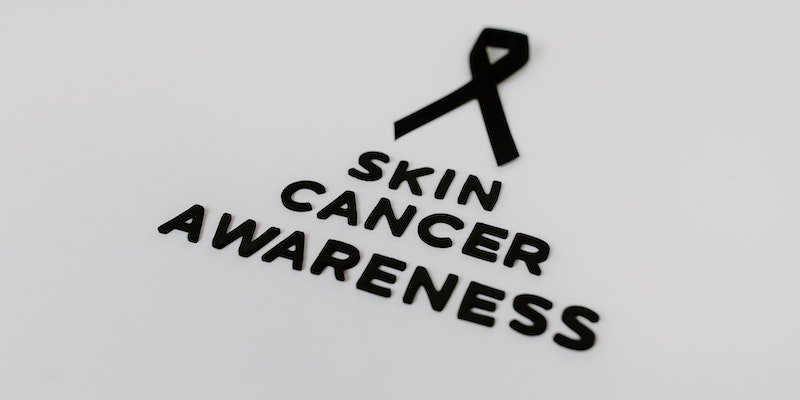The Long-Term Cardiovascular Risks Associated with Shingles
Oct 02, 2023
Many people associate shingles with pain and rash. Research suggests this viral infection may have far-reaching effects. Recent research suggests shingles may increase heart attack and stroke risk over time.
Brief Shingles Overview
Reactivation of the chickenpox virus (VZV) causes shingles. ZVV remains dormant after chickenpox but can cause shingles years later.
Varicella-Zoster Virus
The varicella-zoster virus is known for its ability to stay within the body long after the initial chickenpox infection has resolved. The virus may resurface as individuals age or experience a weakening immune surface, leading to shingles. It's important to note that almost everyone aged 50 years and older in the US has been infected with VZV, making the discussion around shingles and heart attack risk highly relevant.
More Than Just a Rash
Localized, blistering rash on one side of the body characterizes shingles. But the problem goes deeper. The infection's pain, burning, and postherpetic neuralgia risk emphasize its seriousness.
Shingles and Cardiovascular Risk
Shingle infections may have long-term cardiovascular effects, according to new research. A Journal of the American Heart Association study found shingles patients have a nearly 30% higher risk of major cardiovascular events.
Scientific Discoveries
This particular study brought to the forefront a crucial finding: the risk doesn't wane quickly; it persists for 12 years or more after the illness. Especially for those with weakened immune systems, the question "Can shingles affect your heart?" takes on added significance, emphasizing the need for vigilance and monitoring.
Long-Term Implications
Shingles' long-term hazards must be investigated. Previous studies found a short-term increase in stroke and heart attack risk after infection. This risk persisted for years but just lately was realized.
Implications for Immunocompromised Individuals
Compromised immune systems increase shingles and heart attack risk. The increased susceptibility to shingles and subsequent cardiovascular events necessitates tailored preventive and management strategies for this vulnerable population.
VZV and Vascular Damage

In exploring why shingles can lead to an increased risk of heart attack and stroke, it's crucial to examine the behavior of the varicella-zoster virus in the human body. Dr. Curhan's insight into how VZV is the only human virus known to replicate in the arteries offers a starting point for this exploration.
Varicella Zoster Virus
VZV's ability to replicate within arteries results in vasculopathy, which denotes blood vessel damage. This distinctive characteristic of the virus sets the stage for inflammation and arterial damage, providing a plausible explanation for the increased cardiovascular risk observed in shingles patients.
Inflammation
The inflammation resulting from arterial damage is integral to understanding how shingles can increase cardiovascular risk. The inflammatory response, while a natural defense mechanism, can contribute to the development of atherosclerosis, a condition characterized by the narrowing and hardening of arteries, thus answering the query, "Can shingles cause a heart attack?"
Addressing the Risks
Implementing preventive strategies is paramount, given the established link between shingles and heart attack risk. Monitoring and managing inflammation and addressing other cardiovascular risk factors can aid in mitigating the long-term implications of a shingles infection.
Preventive Strategies
Acknowledging the potential risks associated with shingles opens up discussions around preventive measures. Key among these strategies is vaccination, with the advent of the Shingrix vaccine offering a beacon of hope for those keen on protecting themselves against shingles and its complications.
Shingrix Vaccine
In the fight against shingles and the associated heart attack risk, introducing the Shingrix vaccine marks a significant milestone. Unlike its predecessor, Zostavax, Shingrix is not a live vaccine, making it a safer and more practical option for preventing shingles.
- Safety and efficacy: The CDC recommends Shingrix for immune-compromised individuals over 50 and 19. It effectively prevents shingles and postherpetic neuralgia.
- Concerns: "Can shingles cause a heart attack?" highlights the need for broad vaccination. As more people get vaccinated, we anticipate a decline in shingles cases and, potentially, a corresponding decrease in related cardiovascular events.
Public Health Implications
Addressing shingles at a population level can have broad health implications. Increasing awareness and vaccine uptake is essential in reducing the incidence of shingles and the long-term risks associated with the condition, including heart attack and stroke.
Addressing Other Cardiovascular Risk Factors
Shingles must be addressed, but other cardiovascular risk factors must, too. Beyond shingles and heart attack risk, a complete approach to heart health helps guard against cardiovascular illnesses.
Healthy Lifestyle
Encouraging a healthy lifestyle is fundamental. Regular exercise, a balanced diet, and avoiding smoking can play pivotal roles in maintaining cardiovascular health, answering concerns on how shingles can affect your heart, and reducing overall heart attack risk.
Regular Health Check-Ups
Routine health check-ups facilitate the early detection of cardiovascular risk factors. Addressing high blood pressure, managing diabetes, and controlling cholesterol levels are integral to minimizing the risk of heart attack and stroke, especially for individuals concerned about the repercussions of shingles.
Personalized Approach
Every individual is unique, necessitating personalized preventive and management strategies. By considering the individual's medical history, lifestyle, and risk factors, healthcare providers can devise customized plans to mitigate the impact of shingles and other cardiovascular risk factors.
Shaping the Future of Cardiovascular Health
Understanding the connection between shingles and cardiovascular health is essential in developing effective preventive and management strategies. With ongoing research, increased vaccine uptake, and a focus on addressing other cardiovascular risk factors, strides are being made toward safeguarding heart health.
Looking Ahead: Continued Research and Awareness
As research unfolds, the emphasis on awareness and preventive measures remains paramount. Armed with evolving knowledge and resources, the medical community stands at the forefront of addressing questions like "Can shingles cause a heart attack?" and guiding individuals toward a healthier future.
Future Research and Development
While the existing research establishes a foundational understanding of the shingles-cardiovascular risk nexus, further studies are warranted to explore the influence of vaccination status on shingles-related cardiovascular disease risk. Additionally, advancements in therapeutic interventions and a comprehensive approach to managing cardiovascular risk factors in shingles patients will be instrumental in refining patient care.






